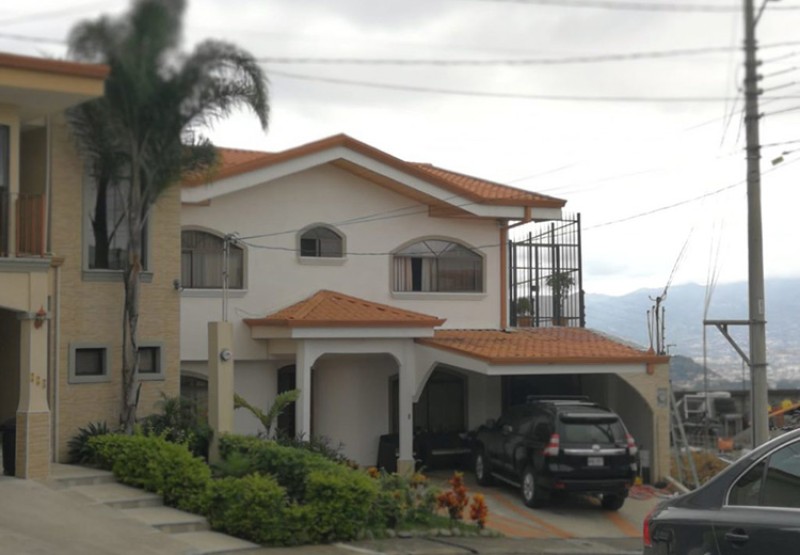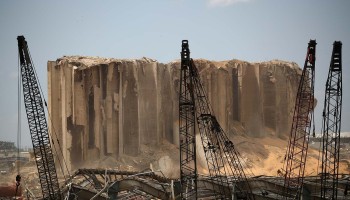In that Carribean country they found help in the form of Mihai Radulescu, a Romanian businessman who has a checkered past himself.
Based on his own experience, Radulescu has served as a model and provided advice for the two women and other Romanian fugitives. He has also supplied more material assistance, including shelter, matrimonial services, and financial and other help in setting up commercial enterprises.
Ranked in a 2018 study as the happiest country in Latin America, Costa Rica has indeed proved a happy place for corrupt Romanian politicians and shady businessmen.
Away From Romanian Troubles
As Romania’s former chief prosecutor in charge of fighting organized crime and terrorism, Alina Bica once went after powerful people for corruption and other crimes. But in 2015 she found herself on the opposite side of the law, charged with bribery and abuse of office herself.
Having already spent six months in pre-trial detention, Bica was going through court proceedings that promised a long time in prison.
Some Romanian fugitives have chosen to hide in other European countries while fending off extradition efforts, and Bica may have been considering this option. With the help of a powerful friend, she set up a firm in Madrid called Amris International Lawyers SLP. The assist came from Ioana Basescu, a Bucharest notary who enabled her to set up the Spanish company. More notably still, Basescu is the daughter of Romania’s former president Traian Basescu.
Then, last summer, Bica visited Costa Rica. One of the most stable countries in Central America, it also has the advantage of having no extradition agreement with Romania for its own citizens. By the end of the year, she had moved there.
She was soon joined by her friend, Elena Udrea, Romania’s former Minister of Tourism.
 Elena Udrea and Alina Bica shopping in Paris in October 2014.
Elena Udrea and Alina Bica shopping in Paris in October 2014.
Udrea, also 44, had her own raft of legal problems, and was awaiting sentencing in a number of cases. In one, involving illegal campaign financing, she is accused of receiving a US$ 315,000 bribe that she used to cover expenses for Traian Basescu’s successful reelection campaign in 2009. The ex-president’s daughter, Ioana, makes an appearance here too, having been charged with money laundering in the same case.
Udrea also faces other charges of taking $3.8 million in bribes from an energy trader which was buying state-generated electricity at below market prices.
Furthermore, Udrea was convicted in absentia of bribery and abuse of power this June in a case related to the organization of an international boxing gala in Romania. She was sentenced to six years in prison.
A protege of former President Basescu, she held ministerial posts in different governments and was a member of parliament during his 10-year reign. In 2014, she tried to become the country’s first female president.
Instead, she arrived a fugitive in San Jose, Costa Rica’s capital, in early February.
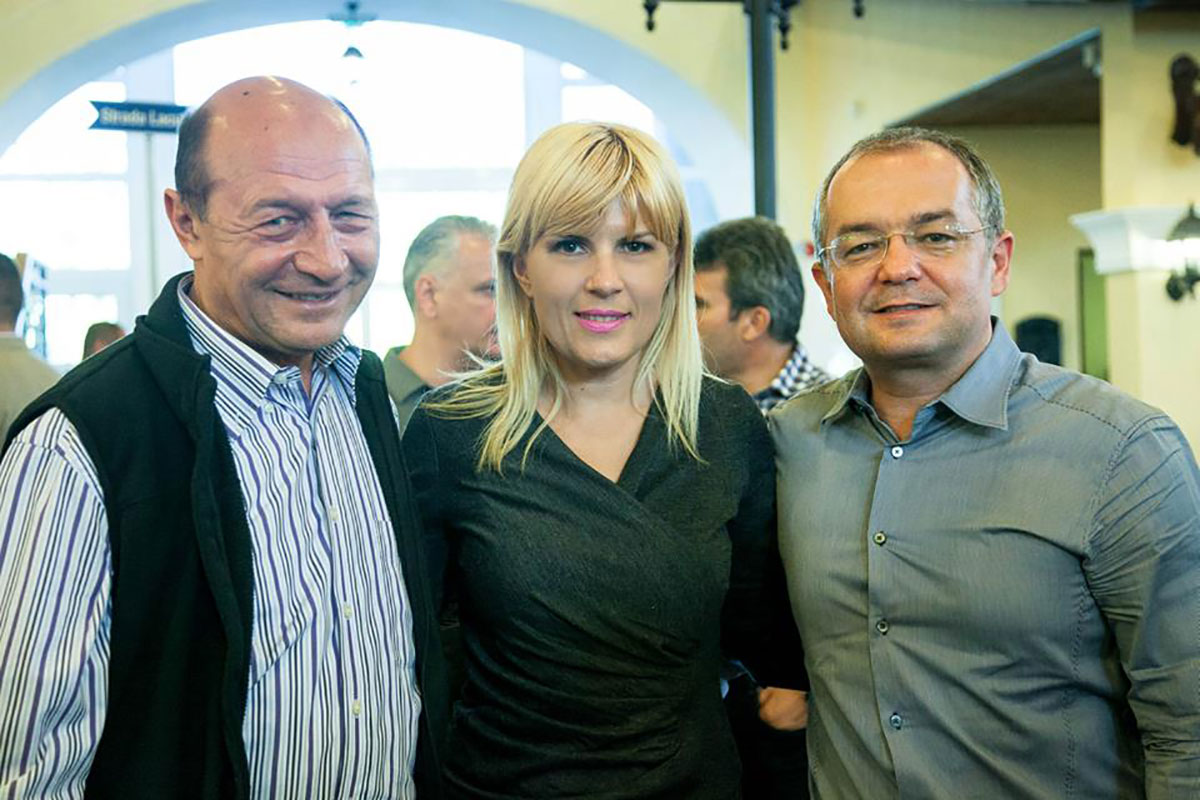 Former Romanian president Traian Basescu, Elena Udrea, and former prime minister Emil Boc during the 2014 electoral campaign. (Photo: Facebook)
Former Romanian president Traian Basescu, Elena Udrea, and former prime minister Emil Boc during the 2014 electoral campaign. (Photo: Facebook)
Shooting the Messenger
The fact that Elena Udrea was not in Greece as her lawyer said, but instead in Costa Rica, was first exposed by the RISE Project, an OCCRP partner. The story led Udrea to accuse journalists of ties with the secret services, which she says are after her.
“I wonder who paid this expensive trip [to Costa Rica] of an obscure website with news delivered by the Securitate [the former Communist secret service],” she wrote in a Facebook post. “I wonder what is next? Will they send someone with a neurotoxin, in the same vein as the assassination attempt in London in March, against the former Russian spy Serghei Skripal?”
She also questioned how journalists obtained the data showing that she had crossed the Costa Rican border. That information is public in Costa Rica.
Udrea’s first attempt at getting out of trouble may have come while she was still on trial, when she enrolled in a master’s degree program at the Faculty of Orthodox Theology at a Romanian university. She made numerous pious statements on Facebook. But in the end, according to local media sources, she was expelled from the program for skipping out on exams.
Udrea last showed up in a Romanian courtroom this Jan. 29. One of the judges in a five person panel stepped down at that hearing and was replaced by Ionut Matei, a prominent magistrate and the court’s former vice president. He is famous for handing down a jail sentence to former prime minister Adrian Nastase, one of Romania’s best known if controversial politicians. Udrea’s lawyers failed in a motion to have Matei removed from the case.
Nine days later, Udrea missed a hearing and was gone from the country. Her lawyer said that she was in Greece on vacation. In reality, she was in Costa Rica.
Udrea and Bica were photographed at a Costa Rican restaurant by a Romanian tourist, a former journalist, who posted the images on Facebook.
 Udrea and Bica together in a Costa Rican restaurant. (Photo: Facebook) In the past few weeks, Udrea has granted interviews to Romanian media and said she would take her case to the United Nations.
Udrea and Bica together in a Costa Rican restaurant. (Photo: Facebook) In the past few weeks, Udrea has granted interviews to Romanian media and said she would take her case to the United Nations.
She has also claimed that she would come back to Romania if a different panel were appointed to review her case. But she did not say when, and it doesn’t look like it will be anytime soon. (Back in Romania, Udrea has been repeatedly defended by former president Traian Basescu. See: Former President Defends Elena Udrea.)
Udrea and Bica have both applied for refugee status in Costa Rica which, if they get it, will protect them from extradition as if they were citizens. The process normally takes about a year, but could take much longer because the Costa Rican system is expected to be backlogged with hundreds of Nicaraguan refugees who have fled the unstable political situation next door so far this month. In addition, over 1,200 Venezuelans have sought refuge there between March and May.
If the two Romanians are denied, they can appeal, which will start the clock again. And even if they are ultimately denied refugee status and declared non-residents, formal extradition is not a quick process. (See: Costa Rica’s Long and Winding Road to Extradition)
The Local Fixer
Bica and Udrea brought with them a handful of relatives, friends and business partners, some of whom were also charged with corruption and awaiting final sentences back in Romania.
Some found a new home and a business partner in Condominio Lomas de Granadilla, an upper-middle-class gated community in the country’s capital city of San Jose.
That’s the two-story house, worth about $130,000 today, where Mihai Radulescu, 51, lives. How much he has helped the new arrivals is unclear — but they share an address, companies and mutual acquaintances. And thanks to his own experience, he is a man who can teach the two women about fitting in and making money in their new country.
He’s proven to be good at that. He’s is involved in at least five Costa Rican companies – often with other Romanians, including Bica.
He is not the perfect neighbor. He has filed several lawsuits against the management of Lomas de Granadilla, including one asking for compensation for a theft and another over a cut electric fence.
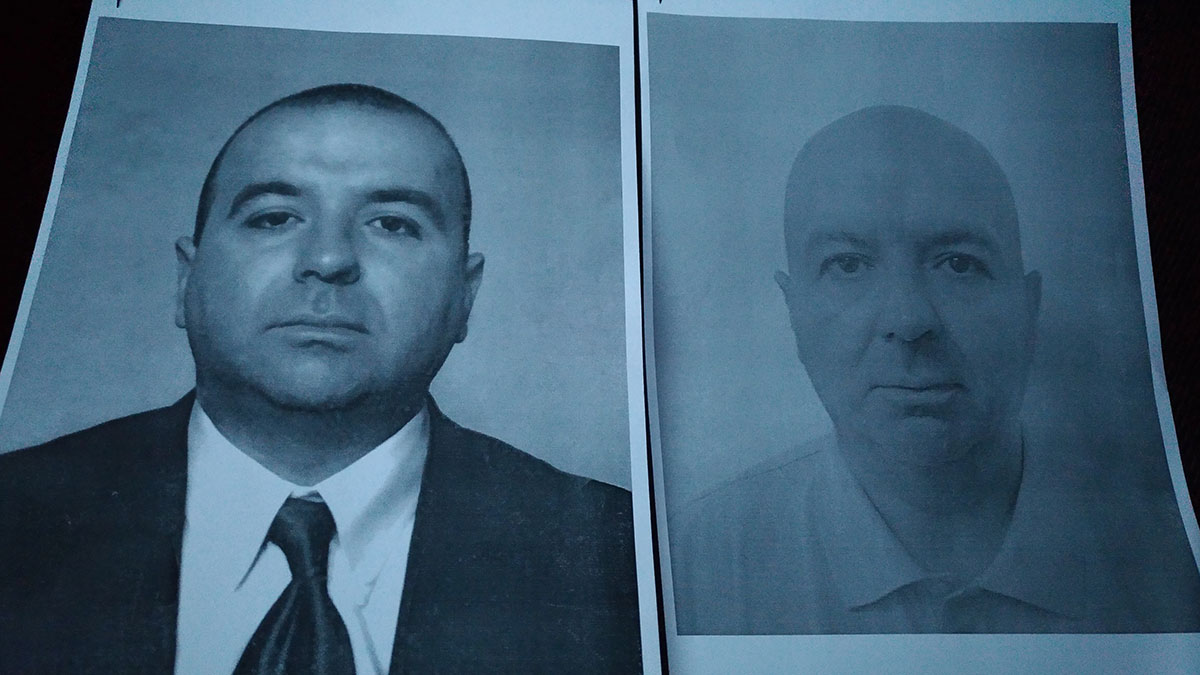 Mihai Radulescu. (Photo obtained by Ana Poenariu)
Mihai Radulescu. (Photo obtained by Ana Poenariu)
He was also barred from the general assembly of the condominium community because of an unpaid debt, and at one point even filed a claim that his pregnant partner was having health issues because of these conflicts. But — according to documents reviewed by OCCRP partner Semanario Universidad — he lost the claims and had to pay over $23,000 in administrative costs in 2017.
But legal problems are nothing new for Radulescu. Reporters found that he was arrested twice in the early ‘90s — first in 1991 for being an accomplice to stealing 36 bottles of whisky, 192 chocolate bars, and peppers from a store in Bucharest. Four years later, he again found himself in a police cell for tax evasion and forgery.
Between 2008 and 2011, he came under investigation again in relation to his time as director of Electrica Serv SA, the partially state-owned company that maintains the national power grid in the northern and central part of Romania. At least two questionable contracts he signed had apparently cost the firm money and led to debt, according to company officials and prosecutors. He eventually left the company, but was then involved with an investment firm that did business with Electrica, leading to more uncollected debts. The investigations against him never got off the ground. (For more details on Radulescu's dealings, see: Doing Business the Radulescu Way)
Radulescu first entered Costa Rica on July 13, 2012, border records show. Within a month, he had married an 18-year-old local woman. The two could not have met in person, since the records show he had never been in Costa Rica and she had never traveled out of the country before their marriage.
Luis Guillermo Chinchilla Mora, general director of the Civil Registry and a judicial official responsible for registering marriages, confirmed to Semanario Universidad that Radulescu became a naturalized citizen through marrying a Costa Rican citizen.
No Costa Rican citizen, naturalized or otherwise, can be extradited.
By July 2015, he and his new wife had divorced — and Radulescu appears to have gotten away without losing any money.
Documents obtained by Semanario Universidad show that he and his wife, Josselyn Auxiliadora Granizo Garcia, had signed a prenuptial agreement that provided for separate finances: “Mr. Radulescu has money that he will invest and all the investments belong exclusively to Mr. Radulescu,” the agreement stipulates.
Semanario Universidad tried to reach Josselyn Granizo, but she was not available at any of the phone numbers registered in her or her relatives’ names.
Radulescu was frequently visited in Costa Rica by a psychologist named Bianca Baican who works at Electrica, a Romanian group connected to Electrica Serv, the Romanian utility company that led to Radulescu’s investigation at home. Border records show that she has visited the country numerous times between August 2012 and November 2017.
Baican is also an associate of Radulescu in two Costa Rican companies.
 Bianca Baican (Photo: Facebook.)
Bianca Baican (Photo: Facebook.)
Even the witness at Radulescu’s Costa Rica marriage is entangled in his cross-border business dealing — and has a curious story on the other side of the world.
Manuel Valentin Andrade Gonzalez is a Costa Rican citizen with Romanian residency. He entered Costa Rica the same day as Radulescu in 2012, and 10 days later signed a document allowing Radulescu to use a bank card that had been issued to him by a Romanian bank in any “type of commerce” in Costa Rica.
That same month, Andrade got involved in a garbage collection business back in Romania, in the Transylvanian town of Deva.
Romanian company records show that he was a representative of Basilicata Limited, a Cyprus company that took over a majority share of Salubritate SA, a Romanian company that collected and processed garbage in Deva. Basilicata’s real owners are unknown, hidden behind Cypriot proxy directors.
Since then, municipal authorities have had differences with Salubritate over garbage collection, with the firm claiming the authorities are obstructing its activities. A former Deva mayor has said he received death threats from the company’s director.
Crime and Marriage
Radulescu has helped other Romanians in need before.
In 2014, he hosted in his home Adrian Draghici, a Romanian lawyer then awaiting a final verdict in a fraud case involving millions of dollars. Draghici was apparently once Radulescu’s lawyer, and up until late 2017, he used the address of Radulescu’s Bucharest house for one of his companies.
Draghici, too, became Radulescu’s associate in a Costa Rica company, and followed the other Romanian in marrying a young Costa Rican woman. The two wed in 2014.
The next year, he returned to Romania, after getting the good news that he’d gotten only a suspended three year sentence.
There he married again. He told reporters that he sent divorce papers to Costa Rica, but doesn’t know what happened to them. He said he was unaware that his divorce in Costa Rica was never completed.
Draghici declined to be quoted for this story, accusing reporters of being paid by Radulescu, whom he characterized as very violent.
In a telephone conversation, his Costa Rican wife, Katherine Andrea Sánchez Gutierrez, 26, said: “We were together for a few months and then the guy left.” She declined to give further comment.
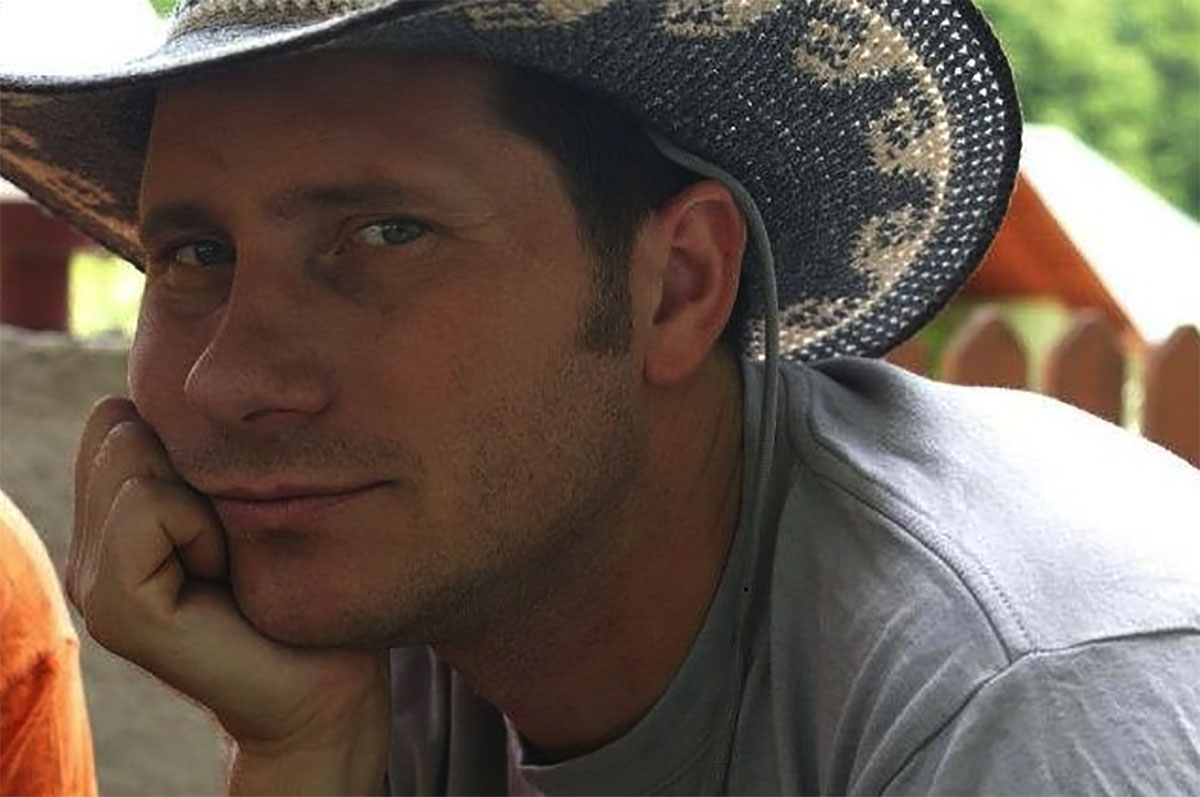 Adrian Draghici (Photo: Facebook)
Adrian Draghici (Photo: Facebook)
Assisting the Entourage
When they came to Costa Rica, Udrea and Bica brought an entourage that included a client of Bica’s client, Calin Silviu Pop, who was involved in an ongoing corruption case and previously sentenced to prison for fraud, and Bica’s husband, Mircea Octavia Bica, also being tried for fraud.
The two men set up a local company registered in Radulescu’s home, ASP Centroamerica SA, which, according to its incorporation certificate, aims to “provide any service in general, export and import any legal product, and generally, real estate, trade, agriculture, industry, livestock.”
Not long after Udrea joined Bica in Costa Rica, her former close associate Sergiu Diacomatu also visited, according to border records. He was tried for corruption in two cases related to illegal land restitutions and is a co-defendant with Bica in one of these cases.
He entered the country in April 14 and left four days later. Diacomatu, nicknamed “Bancomatu” — the “Cash Machine” — was the deputy president of Romania’s National Authority for the Restitution of Property.
Diacomatu told reporters that he was just on vacation and didn’t see the women. He said doesn't get along with Udrea anymore.
A Handy Notary
Reporters found that Radulescu and his guests used the same local notary, Damaso Ruiz Carrion, to do the paperwork needed for such matters as setting up companies, certifying marriages, divorces, and prenuptial agreements, and granting access to bank cards and phone numbers.
As it turns out, Ruiz wasn’t helpful only to Romanians. His trail leads to a whole network of Colombian drug dealers in Costa Rica — many of whom married local women. (See: The Costa Rican Colombians)
In 2009, Costa Rica took action to prevent abuse of its citizenship rules.
If authorities prove that a marriage is fake, disciplinary and criminal sanctions can be applied. Notaries, witnesses and fake brides and grooms can get up to five years in prison. Authorities can also invalidate suspect marriages and revoke citizenship.
OCCRP and Semanario Universidad reporters tried numerous times to contact Ruiz Carrion and sent the notary questions, but they were never answered.
Elena Udrea did not answer questions or respond to interview requests sent to her WhatsApp number, although the messages were all marked as seen.
OCCRP and Semanario Universidad reporters tried numerous times to contact Damaso and sent the notary questions, but they were never answered.
On June 5, the same day her final conviction to six years in prison came down, Udrea thanked supporters for believing in her. Her statements ended with the words: “May God help all of us!”
This story is part of the Global Anti-Corruption Consortium, a collaboration by OCCRP and Transparency International.
